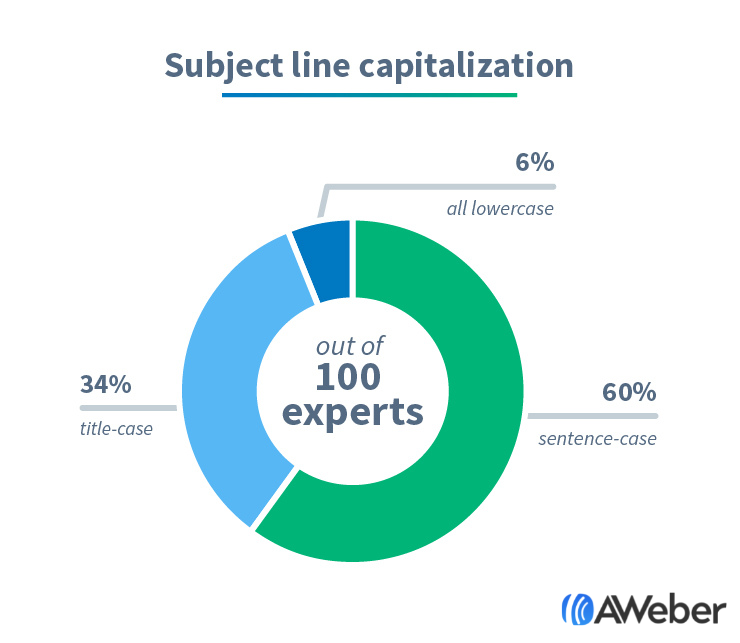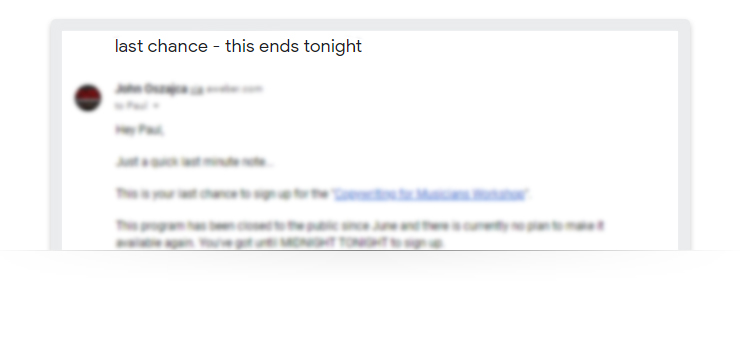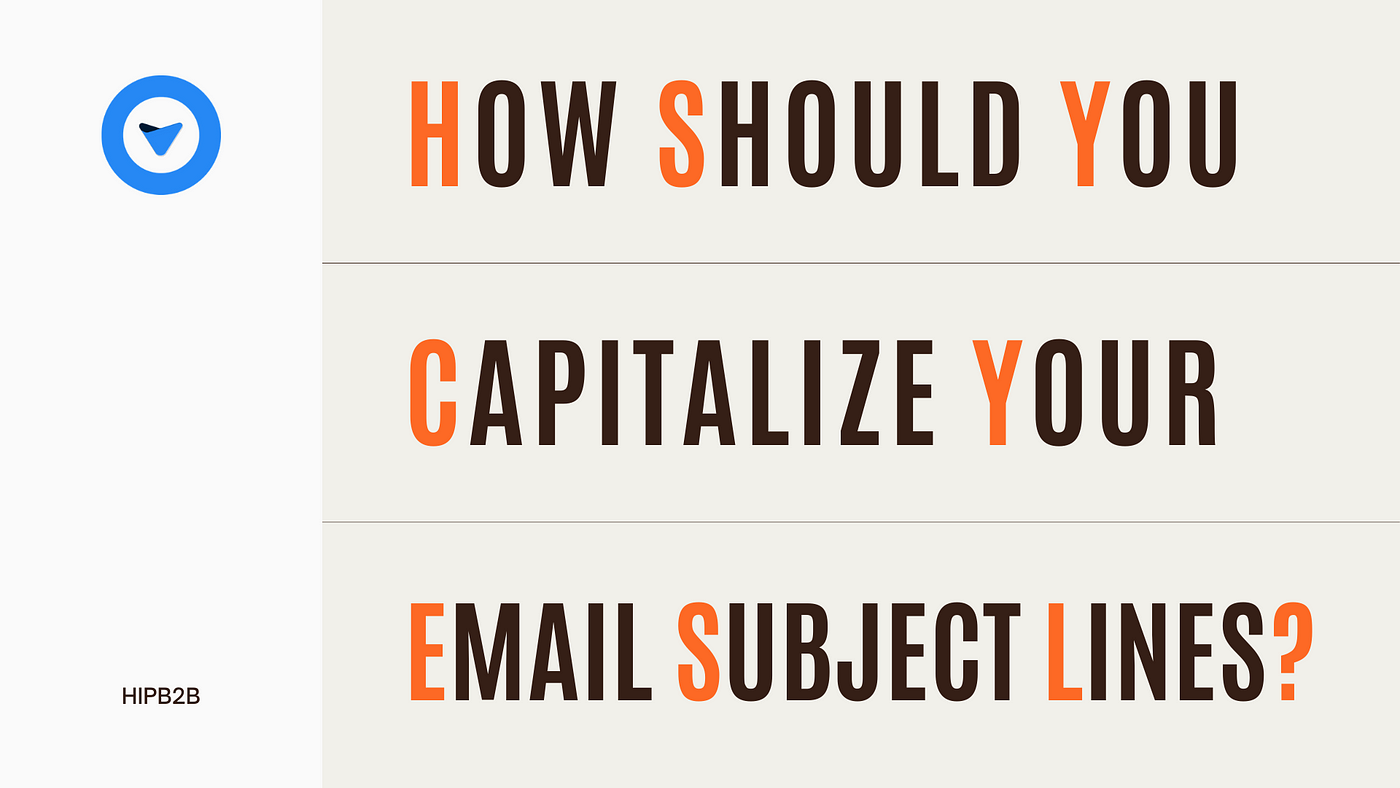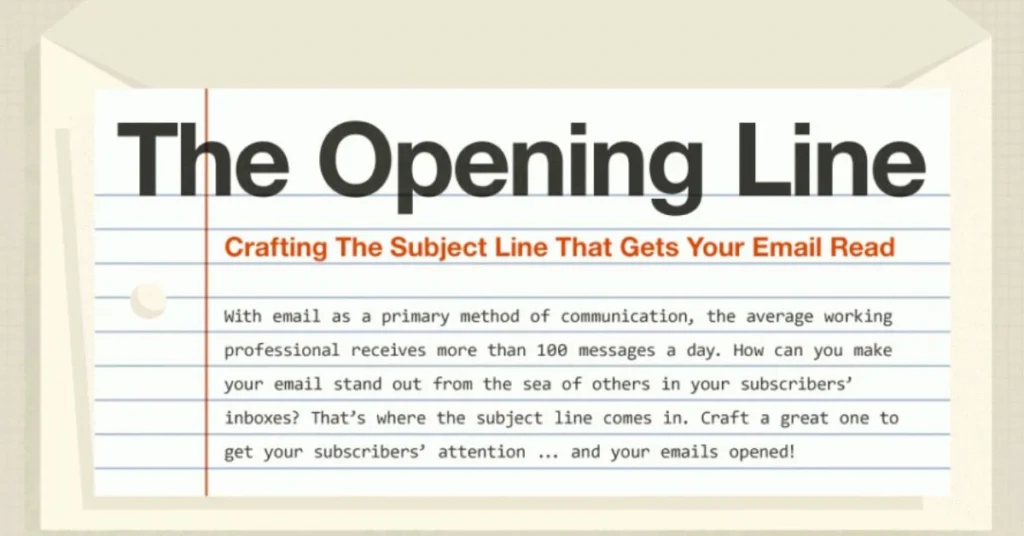Are you ever puzzled by the thought of whether to capitalize the subject lines of your marketing emails? You’re not alone.
This seemingly small detail can make a big difference in how your emails are perceived and whether they get opened or ignored. Imagine your inbox as a crowded room. Your email subject line is your voice trying to get noticed.
Would a capitalized subject line stand out more, or would it come across as shouting? Understanding the psychology behind this can help you make the right decision for your audience. Dive into this article to uncover insights that could elevate your email marketing game. Let’s explore how something as simple as capitalization could impact your open rates and engagement.
Importance Of Subject Line Capitalization
When it comes to marketing emails, subject lines are your first impression. This small line of text can determine whether your email gets opened or ignored. But does capitalization of your subject line really matter? Let’s dive into why subject line capitalization can be crucial for your email marketing success.
Why Capitalization Matters
Capitalization in your subject line can grab attention quickly. It helps emphasize key words, making your message stand out in a crowded inbox. Imagine scrolling through emails and seeing one with capitalized words—it instantly catches your eye, doesn’t it?
Consider your own experience. Have you ever noticed how some subject lines seem more urgent or exciting when they are capitalized? It’s not just about aesthetics; it’s about creating a sense of importance.
Impact On Readability
Capitalization can also improve readability. A well-capitalized subject line breaks up text, allowing for easier scanning. This is important in an era where people skim content quickly.
Think about how easily you can spot a headline in a newspaper. It’s the capitalization that often makes it pop out. The same principle applies to email subject lines.
Testing And Analyzing Results
So, should you always capitalize your subject lines? The answer might not be a simple yes or no. It’s essential to test different approaches and analyze what works best for your audience.
Try capitalizing different parts of your subject line, like the first word or key phrases. Track the open rates and engagement levels. You might discover surprising results that challenge common assumptions.
Balancing Creativity And Clarity
While capitalization can enhance your subject line, balance is key. Overdoing it can lead to clutter and confusion. You want your subject line to be creative yet clear.
Ask yourself: Is the capitalization making the subject line more inviting or overwhelming? Striking the right balance ensures your message is compelling without being overpowering.
Final Thoughts
Your email subject line is a powerful tool. Capitalization can amplify its impact, making it more visible and engaging. Consider experimenting with different styles to see what resonates with your audience.
Remember, it’s not just about the look; it’s about the message you’re conveying. What do you want your readers to feel when they see your email? Capitalization could be the key to making that impression last.

Credit: blog.aweber.com
Psychological Impact
Capitalizing marketing email subject lines can affect reader perception. It might catch attention but seem aggressive. Lowercase offers a softer, friendlier tone. Both styles influence psychological response, potentially impacting open rates.
In the world of email marketing, the subject line is your first impression and arguably the most important part of your message. But have you ever wondered about the psychological impact of capitalizing your subject lines? It’s more than just a stylistic choice; it can significantly influence how your audience perceives and reacts to your emails.
Perception And Attention
Capitalization in subject lines can affect how your email is perceived and whether it catches your audience’s attention. For instance, a fully capitalized subject line may feel like shouting, which can be off-putting for many. On the other hand, using capital letters strategically, such as capitalizing the first letter of key words, can make those words stand out and grab attention.
Consider your own email inbox. Do you tend to open emails with subject lines that are visually appealing and easy to read? Your audience likely feels the same way. Capitalizing key words can guide the reader’s eye, making your email more noticeable among the many others they receive daily.
Emotional Responses
The way you capitalize your subject lines can also evoke different emotional responses. Capitalized words can convey urgency, importance, or excitement, but they can also come across as aggressive.
Think about the emotional tone you want to set. Are you trying to create a sense of urgency with phrases like “Limited Offer” or “Act Now”? Using capitalization here can be effective. However, it’s crucial to balance this with a respectful tone to avoid alienating your audience.
Have you ever felt annoyed by an email subject line that seemed too pushy or aggressive? It’s important to remember that your readers are human, and their emotional reactions can determine whether they open your email or send it straight to the trash.
In your marketing strategy, consider how capitalization aligns with your brand’s voice and the message you’re trying to convey. Ask yourself if capitalizing certain words truly enhances your subject line or if it risks turning potential customers away.
Brand Consistency
Brand consistency is vital for marketing strategies. It ensures every interaction aligns with the company’s identity. This consistency extends to email subject lines. Keeping them uniform strengthens brand recognition.
Aligning With Brand Voice
Every brand has a unique voice. Subject lines should reflect this voice. If your brand is casual, opt for relaxed language. A formal brand should use professional terms. This alignment builds trust with your audience.
Maintaining Professionalism
Professionalism is key in email marketing. Capitalized subject lines often look more polished. This approach signals attention to detail. It conveys respect for the recipient. Ensuring subject lines are well-structured enhances credibility.
A/b Testing Insights
Curious minds often ask if capitalized subject lines in marketing emails grab attention better. Testing different styles can reveal what engages recipients most effectively. Insights from A/B testing show how capitalization impacts open rates, helping marketers craft more compelling messages.
When it comes to email marketing, the subject line is your first chance to make a lasting impression. But should you capitalize it? A/B testing can offer valuable insights. By experimenting with different formats, you can discover what truly resonates with your audience. Dive into these insights to make informed decisions about your email marketing strategy.
Analyzing Engagement Rates
Understanding how capitalization affects engagement rates can be a game-changer. You might find that capitalized subject lines grab more attention, leading to higher open rates. On the other hand, some audiences may prefer a more casual, lowercase approach.
Engagement rates are crucial. They tell you if your emails are compelling enough to make subscribers click. Use A/B testing to compare the performance of capitalized and non-capitalized subject lines.
Keep track of metrics like open rates, click-through rates, and conversions. A simple change in capitalization could significantly impact these numbers.
Identifying Patterns
Look for patterns in your A/B testing results. Do capitalized subject lines consistently perform better at certain times of the year? Or do they work better for specific types of promotions?
Pay attention to your audience demographics. A younger audience might prefer lowercase subject lines that feel more relatable. In contrast, an older demographic might respond better to formal capitalization.
As you identify patterns, adjust your email strategy accordingly. Regularly updating your approach based on data ensures you stay aligned with your audience’s preferences.
Remember, A/B testing is not a one-time task. Continuous testing helps you adapt to changes in your audience’s behavior. What worked last year might not work today. Stay curious and keep experimenting to optimize your email marketing efforts.
So, should your marketing emails’ subject lines be capitalized? Let your data guide the way. What insights have you gained from your tests? Share your experiences in the comments below.
Industry Practices
Industry practices around email subject line capitalization vary widely. These practices often depend on the sector and brand identity. Some industries lean towards full capitalization, while others prefer sentence case. Understanding these trends can help tailor strategies to maximize open rates and engagement.
Trends In Different Sectors
In the retail sector, full capitalization grabs attention. Shoppers see urgency and special offers. Technology companies often use sentence case. It feels more personal and conversational. Financial services might use title case, suggesting professionalism and trust. Each sector has unique trends and reasons behind their choices.
Examples From Leading Brands
Apple often uses sentence case in emails. It aligns with their sleek and friendly brand image. Nike, on the other hand, uses full capitalization. This matches their bold and energetic branding. Amazon varies its approach, using sentence or title case. Their strategy depends on the message’s tone. These examples highlight diverse approaches among successful brands.

Credit: blog.aweber.com
Guidelines For Effective Subject Lines
Capitalize subject lines to catch attention, but avoid all caps, which can seem aggressive. Balance is key; use title case for a professional feel and sentence case for a friendly tone. Consider audience and brand voice to decide which style suits your marketing emails best.
Crafting the perfect subject line for marketing emails can feel like decoding a complex puzzle. Subject lines are the first thing your audience sees, and they can make or break your email’s open rate. So, how do you create a subject line that catches attention without being overbearing? It’s all about balance, clarity, and crafting a message that resonates.
Balancing Capitalization And Clarity
Capitalization can enhance or hinder the clarity of your subject lines. Overusing capital letters might come off as shouting, while too little capitalization may make your email look unprofessional.
Consider capitalizing the first letter of each word for a balanced approach. This can make your subject line stand out without appearing aggressive. For example, “Get Your Free Ebook Today” is both clear and engaging.
Crafting Compelling Messages
A compelling subject line is more than just words; it’s a promise of value. Think about what excites your audience. A subject line like “Unlock Exclusive Deals Now” speaks directly to their interests.
Personal experiences can offer valuable insights. Remember a time you clicked on an email just because the subject line intrigued you? What was it about that line? Use that knowledge to shape your own messages.
Ask yourself: What would make you open an email? Could it be curiosity, urgency, or exclusivity? Use these triggers to craft your subject lines. Keep it short, direct, and focused on what matters to your audience.
Potential Drawbacks
Capitalizing every word in email subject lines might appear aggressive or shouty, potentially turning off recipients. These overly emphasized lines can be perceived as spam, reducing open rates. Balancing capitalization with readability ensures the message is engaging and not overwhelming.
When crafting marketing emails, you might wonder about the best way to format your subject lines. Capitalizing subject lines can seem like a simple choice, but it comes with its own set of potential drawbacks. While it might grab attention, it can also lead to unintended consequences that could affect the effectiveness of your email campaigns.
Overuse And Misinterpretation
Capitalizing every word in your subject line can make it look like you’re shouting at your readers. Imagine opening your inbox and seeing multiple emails screaming for your attention. It can feel overwhelming and may cause recipients to ignore or delete your email.
Moreover, different audiences interpret capitalized subject lines differently. What might seem exciting to one person could appear aggressive to another. This misinterpretation can lead to a disconnect between your brand and your audience, potentially harming your brand’s reputation.
Impact On Open Rates
You might think capitalized subject lines boost open rates, but that’s not always the case. Over-capitalization can make your email look like spam. Many users instinctively avoid opening emails with all-caps subject lines, fearing they’re unsolicited advertisements or scams.
Studies suggest that more natural-looking subject lines tend to perform better. Emails with conversational and friendly subject lines often have higher open rates. Consider how you react when you see a capitalized subject line in your inbox. It might make you pause, but does it compel you to click?
Think about your own habits when sorting through emails. Would you be more inclined to open an email that feels personal and relatable, or one that feels like a generic shout for attention? Your answer will likely guide you toward a more effective email marketing strategy.
Case Studies
Understanding the impact of capitalizing subject lines in marketing emails can be a game-changer for your campaigns. To shed light on this, we’ll delve into case studies that demonstrate the effectiveness of different strategies. By examining successful campaigns and lessons learned, you can determine whether capitalizing your subject lines is the right move for you.
Successful Campaigns
One standout example involves a popular retail brand. They decided to capitalize their email subject lines for a seasonal sale event. The result? A noticeable increase in open rates. Customers were drawn to the assertive tone, which conveyed urgency and excitement.
Another case study worth mentioning is a tech company that tested capitalized subject lines during a product launch. Their emails with capitalized subject lines had a higher click-through rate compared to those with standard formatting. This suggests that capitalized subject lines can grab attention and encourage engagement.
Lessons Learned
From these case studies, you can see how capitalized subject lines can create a sense of urgency. However, it’s essential to use them wisely. Overuse can lead to a perception of shouting, which may turn off subscribers.
Balance is key. Consider capitalizing only the first letter of each word or just the main keywords. This approach maintains emphasis without overwhelming your audience.
Reflect on your audience’s preferences. Are they likely to respond positively to bold and capitalized text? Testing different formats will help you understand what resonates with them.
Ultimately, the decision to capitalize your subject lines should be based on data and insights from your campaigns. Are you ready to experiment and see what works best for your audience?

Credit: hipb2b.medium.com
Frequently Asked Questions
Should An Email Subject Line Be Capitalized?
Capitalize the first word and proper nouns in email subject lines. This approach improves readability and professionalism. Avoid all caps as it can seem aggressive or spammy. Use title case for a formal tone or sentence case for a casual feel.
Always align with your brand’s style guide.
Should Subject Titles Be Capitalized?
Capitalize the first, last, and all major words in subject titles. Avoid capitalizing articles, conjunctions, and prepositions under four letters. This enhances readability and professionalism, while aligning with standard writing conventions. Keep titles concise and relevant for better SEO visibility.
Does Marketing Need To Be Capitalized?
“Marketing” is not capitalized unless it’s part of a specific name or title. Capitalize when used as a proper noun, like “Marketing Department. ” Always use lowercase for general references to the field or practice. Proper capitalization enhances readability and professionalism in content.
Does It Matter If An Email Is Capitalized Or Not?
Email addresses are not case-sensitive. Lowercase and uppercase characters are treated equally. You can use any capitalization style, and it won’t affect delivery. Consistent formatting improves readability, but functionality remains unaffected.
Conclusion
Choosing the right email subject line style matters. Capitalization can affect reader perception. It may grab attention or appear aggressive. Consider your brand tone. Test different styles to see what works best. Understand your audience’s preferences. Balance creativity with clarity.
Aim for engagement, not just clicks. Stay consistent with your brand’s voice. Every email is a chance to connect. Use subject lines wisely. They are the first impression. Make it count. Keep experimenting and learning. Success lies in understanding what resonates.
Your subject line sets the stage. Let it shine.

